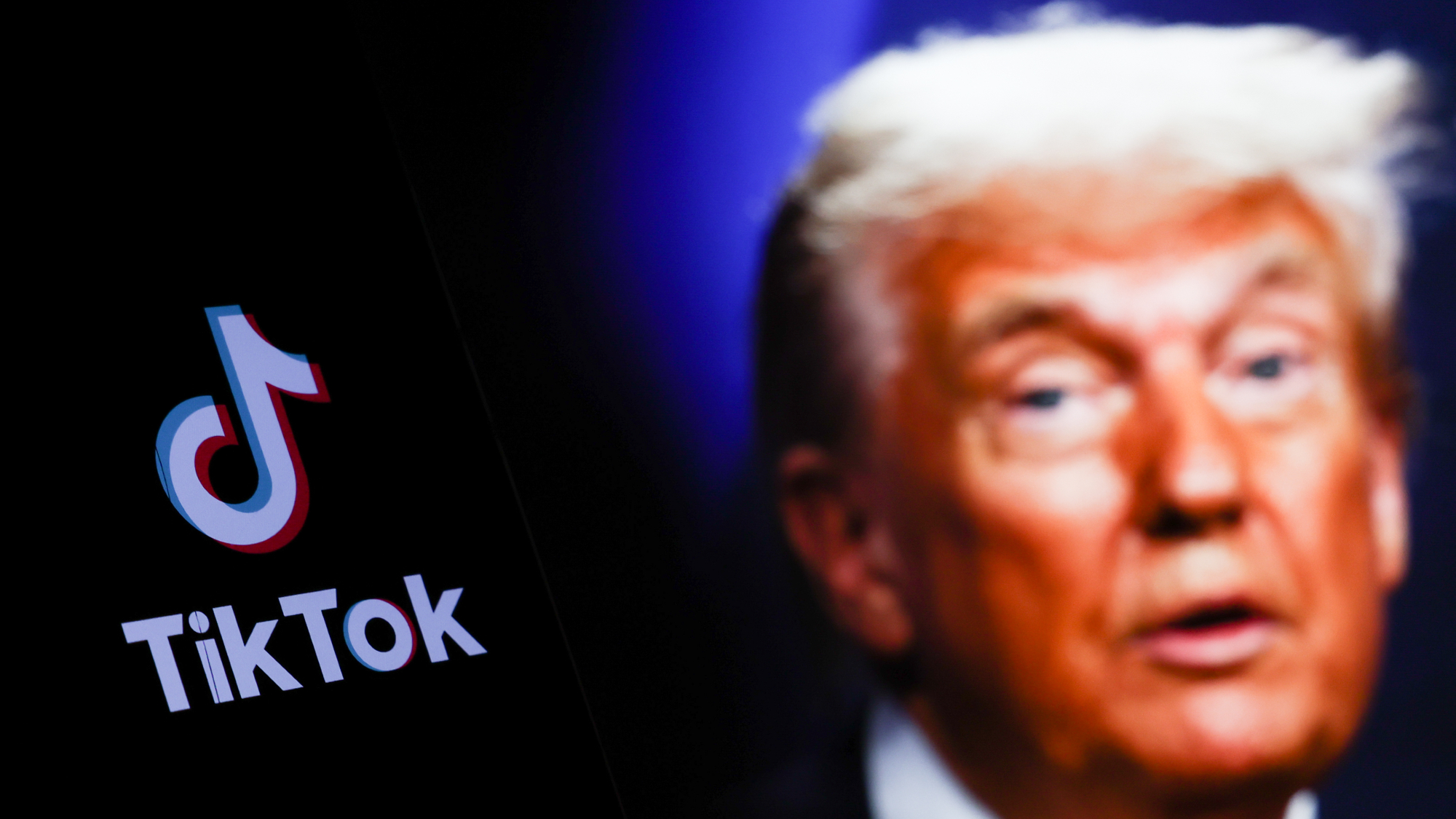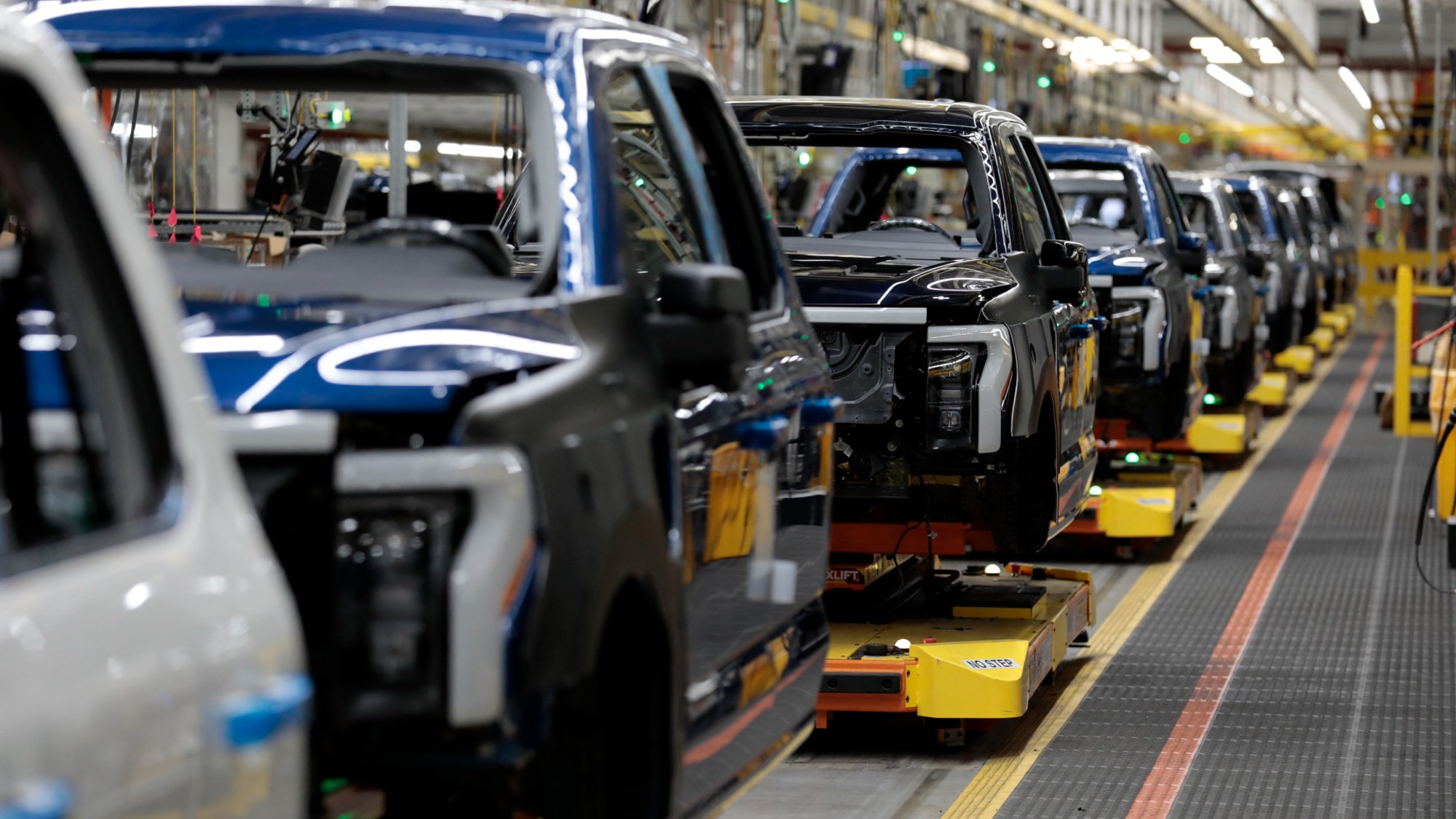Who are the new-wave hackers bringing the world to a halt?
Individual groups and nations are beginning to form concerning partnerships with new ways to commit cybercrime

An average of about four “nationally significant” cyberattacks were launched in the UK every week in the last year, twice as many as in the previous 12 months, according to the UK cyber agency’s latest annual review.
“Cyber is being used by state and non-state actors,” said the National Cyber Security Centre, “and the overall cyber threat to the UK is growing from an already high level.”
Following the recent cyberattacks on Jaguar Land Rover, Marks & Spencer and Asahi, other companies are desperately trying to avoid the same thing happening to them.
The Week
Escape your echo chamber. Get the facts behind the news, plus analysis from multiple perspectives.

Sign up for The Week's Free Newsletters
From our morning news briefing to a weekly Good News Newsletter, get the best of The Week delivered directly to your inbox.
From our morning news briefing to a weekly Good News Newsletter, get the best of The Week delivered directly to your inbox.
Where do they come from?
Globally, around half of cyberattacks in 2024 may be attributed to financially motivated cybercriminals, while state-sponsored actors accounted for around a third, according to a report by Cognyte.
The “Big Four” – North Korea, Iran, Russia and China – are highest on the UK’s state actor list, said Politico. Three are considered “hostile states” and “Britain has an uneasy relationship with the latter”.
But a group of young, English-speaking hackers, who sometimes go by the name of Scattered Spider, claimed responsibility for the recent large-scale attacks on M&S and Jaguar Land Rover, although this hasn’t been confirmed.
How do the new hacking groups work?
Ransomware is still one of the “most acute and pervasive cyberthreats” to the UK, said the National Cyber Security Centre. This was underscored in the attacks on British retailers this year, but most cybercriminals are “sector agnostic”. They target organisations that are vulnerable, hold sensitive data and are likely to pay a ransom.
A free daily email with the biggest news stories of the day – and the best features from TheWeek.com
One Russian group, Qilin, is “cementing its place as one of the most prolific ransomware-as-a-service operations in the world”, said Digit. It recently claimed responsibility for a cyberattack on Japan’s Asahi Group – which also owns Peroni and UK chain Fuller’s – forcing the “suspension of order and shipment operations in Japan”.
Like many other new groups, Qilin operates as a ransomware-as-a-service (RaaS) network, said IBM. Unlike conventional “gangs”, it functions more as a “business model” that can even run “customer-service portals to help affiliates troubleshoot deployment”.
Whereas traditional attacks were carried out by highly technical malware, this “game-changing” RaaS business model rents out cutting-edge malware in return for “20% to 40% of the profits”. Overcoming the time-intensive and “limited scalability” of old gang models, RaaS provides “nearly anyone with malicious intent” with the means to “carry out powerful attacks using advanced tools”.
How are states using cyberattacks?
Countries like Russia, Iran and China are “increasingly relying on criminal networks” to target political “adversaries”, said AP News. Security officials are reporting more and more “growing collaboration” between governments and hackers, demonstrating “increasingly blurred lines” between state espionage and hackers motivated by financial gain.
This “marriage of convenience” is set to become more popular, as the symbiotic relationship is hard to break: governments experience a “boost” in cyber activity “without added cost”, while new profit opportunities and “government protection” are directly in the attackers’ interests.
Russia’s invasion of Ukraine, for example, has “inspired a growing number of pro-Russia hacktivist groups”, said the UK cyber agency. Without formal state control, they choose Western targets based on vulnerability, which “makes their activities less predictable”.
Will Barker joined The Week team as a staff writer in 2025, covering UK and global news and politics. He previously worked at the Financial Times and The Sun, contributing to the arts and world news desks, respectively. Before that, he achieved a gold-standard NCTJ Diploma at News Associates in Twickenham, with specialisms in media law and data journalism. While studying for his diploma, he also wrote for the South West Londoner, and channelled his passion for sport by reporting for The Cricket Paper. As an undergraduate of Merton College, University of Oxford, Will read English and French, and he also has an M.Phil in literary translation from Trinity College Dublin.
-
 The best fanfic that got published and went mainstream
The best fanfic that got published and went mainstreamThe Week Recommends Fan fiction websites are a treasure trove of future darlings of publishing
-
 ‘Something close to a universal rallying cry’
‘Something close to a universal rallying cry’Instant Opinion Opinion, comment and editorials of the day
-
 Trump sues IRS for $10B over tax record leaks
Trump sues IRS for $10B over tax record leaksSpeed Read The president is claiming ‘reputational and financial harm’ from leaks of his tax information between 2018 and 2020
-
 TikTok finalizes deal creating US version
TikTok finalizes deal creating US versionSpeed Read The deal comes after tense back-and-forth negotiations
-
 Why Britain is struggling to stop the ransomware cyberattacks
Why Britain is struggling to stop the ransomware cyberattacksThe Explainer New business models have greatly lowered barriers to entry for criminal hackers
-
 Jaguar Land Rover’s cyber bailout
Jaguar Land Rover’s cyber bailoutTalking Point Should the government do more to protect business from the ‘cyber shockwave’?
-
 Trump allies reportedly poised to buy TikTok
Trump allies reportedly poised to buy TikTokSpeed Read Under the deal, U.S. companies would own about 80% of the company
-
 The Hermit Kingdom's laptop warriors
The Hermit Kingdom's laptop warriorsFeature American firms are unwittingly hiring IT workers with a second job—as North Korean operatives
-
 How will Ford reinvent EV manufacturing to compete with China?
How will Ford reinvent EV manufacturing to compete with China?Today's Big Question Henry Ford's assembly line system is being replaced
-
 Is China winning the AI race?
Is China winning the AI race?Today's Big Question Or is it playing a different game than the US?
-
 Airplane crash-detection systems could be vulnerable to hackers
Airplane crash-detection systems could be vulnerable to hackersUnder the Radar 'The idea scares the shit out of me,' one pilot said